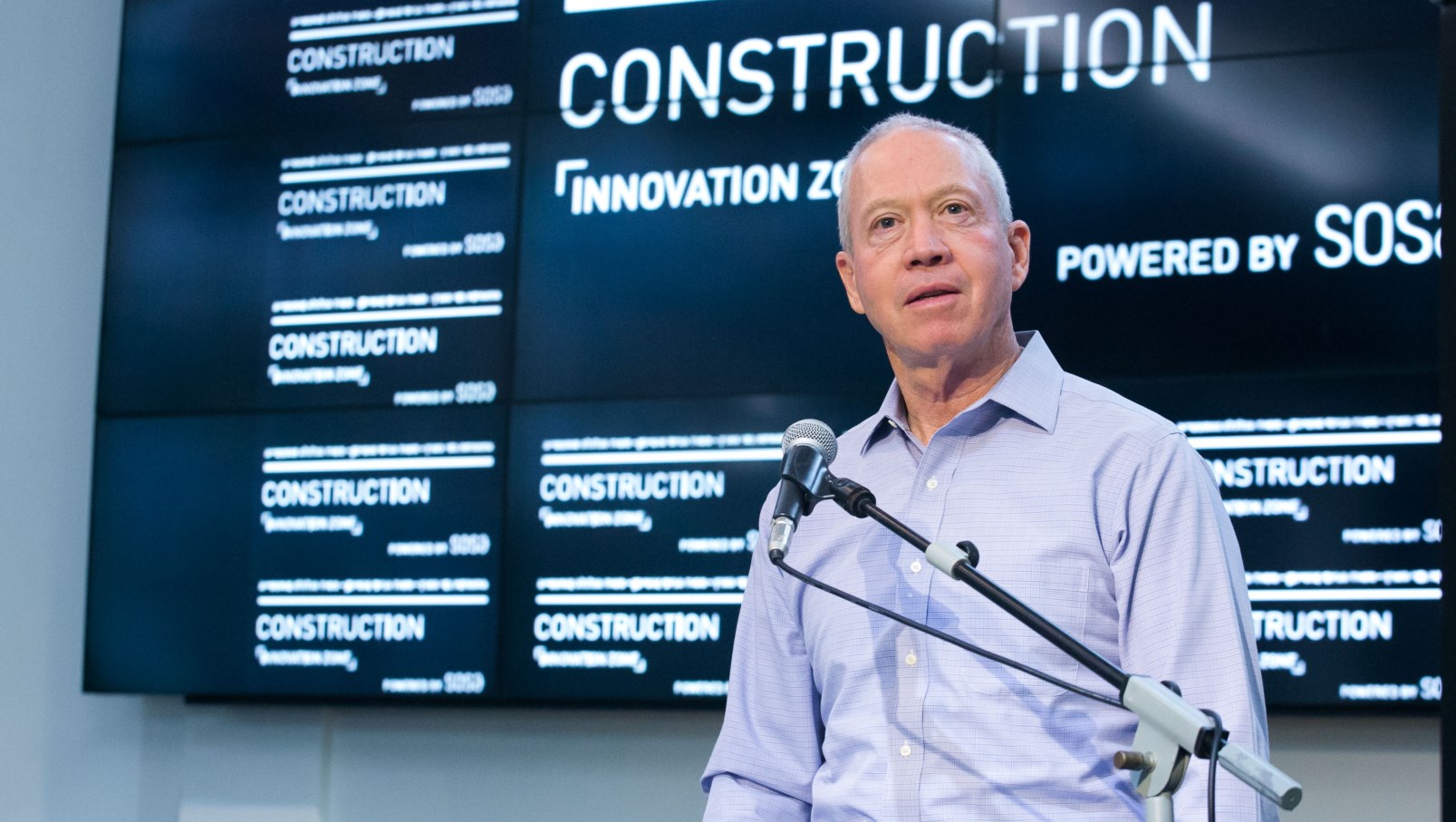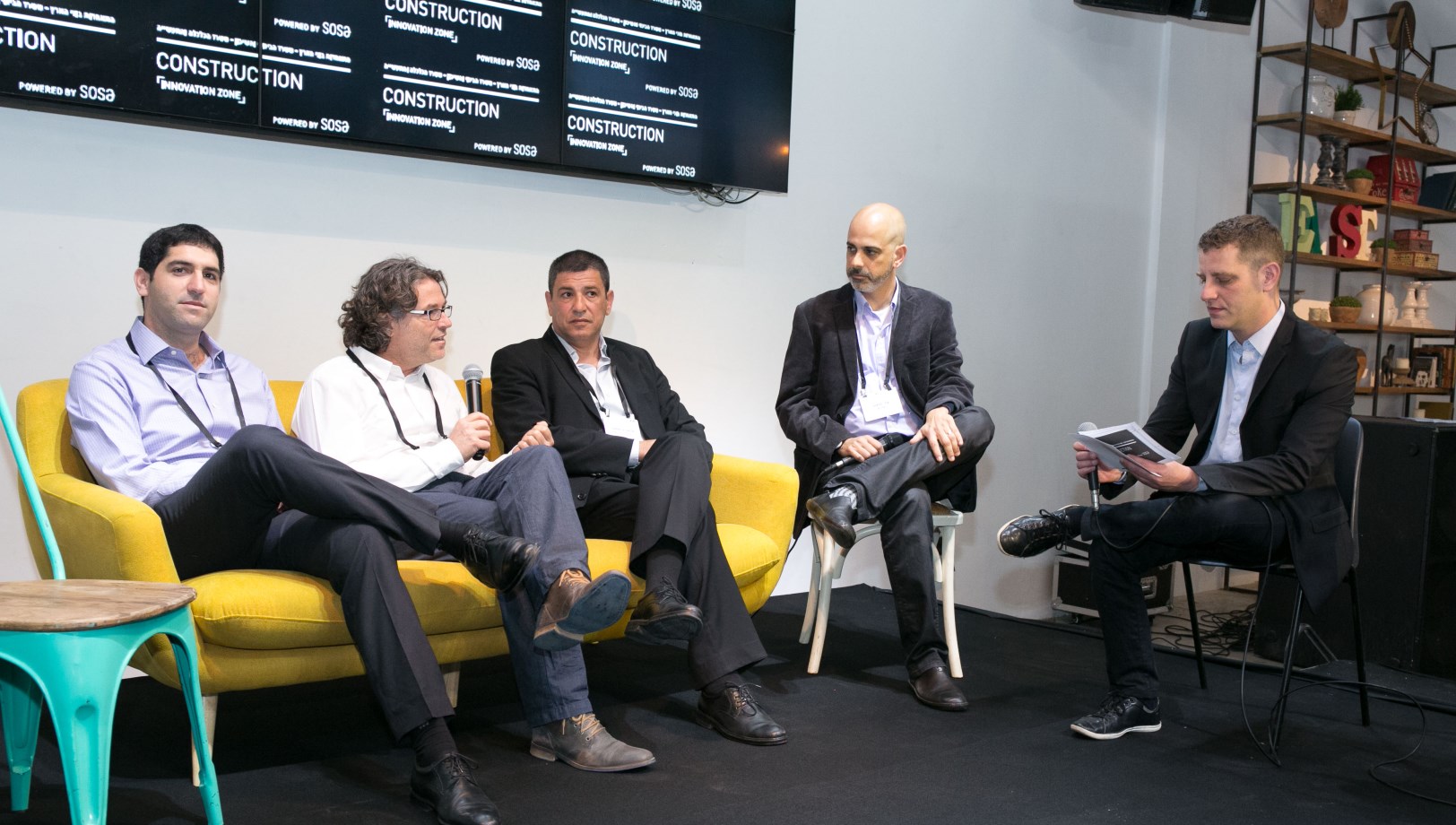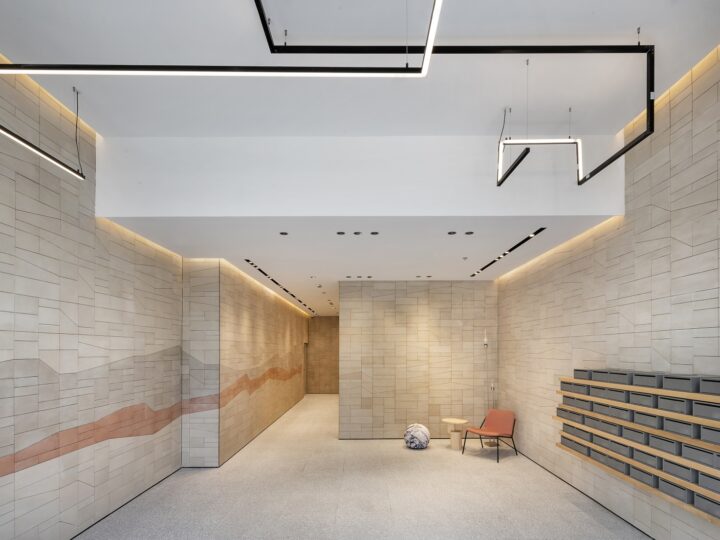The Israeli launch of the world’s first construction-tech hub aims to provide construction companies and real-estate developers everywhere access to disruptive high-tech innovation.
Announced on April 27, the Construction Innovation Zone is a unique joint project of the Israel Builders Association, the Tel Aviv-based SOSA platform for global startup ecosystems, the Israeli Construction and Housing Ministry and the Israeli Economy Ministry.
“The state of Israel has proven itself as a leader in the world of high-tech and innovation, changing the way we communicate, the way we drive and now the way we build,” said Minister of Construction and Housing Yoav Gallant at the launch held at SOSA, where the hub will be based.
“We are championing the combination of new technologies to create new models of operation, improve methods of construction and accelerate production times. This initiative will lead to progress and innovation in the construction industry, and as more and more startups join, and as the program expands to new industries, many more breakthroughs will be created,” Gallant stated.
Software and hardware solutions for the actual building process — as well as planning, managing and financing construction projects — are included under the rather new construction-tech umbrella.

Drones and robots
“We are in a unique position to create the next ‘it’ technology field,” says Uzi Scheffer, CEO of SOSA.
“Much like the efforts the Israeli government took to spark the auto-tech industry with grants and a positive regulatory environment, our partnership will help lay the groundwork for the fundamental disruption of the multi-trillion-dollar global construction and real-estate development industry.”
Connecting the two huge industries of construction and high-tech necessitates creating a niche ecosystem in Israel, involving startups, investors, academia, government agencies, regulators and service providers, Scheffer tells ISRAEL21c.
“Most of the companies in this ecosystem will be Israeli, but not all. We will start locally but we see huge opportunity for this program.”
Examples of Israeli companies that already offer high-tech products for construction include Dronomy of Tel Aviv and Beyon3D of Herzliya.
Dronomy uses off-the-shelf drones to inspect construction sites autonomously, creating 2D and 3D models to compare actual progress against building plans in order to spot any discrepancies. “This will have a huge impact, and it doesn’t take much to implement it,” Scheffer comments.
Beyon3D offers a fully automatic robotic manufacturing process to turn a 2D drawing or 3D model into a prefabricated building component using high-grade concrete and gypsum mixes and a self-leveling sealer for coating and finishing.
Scheffer says that startups and established companies in the fields of project management, supply-chain management and fin-tech also are of interest to construction companies.

Tapping into innovation
The Israel Builders Association’s 2,000 members will help identify pain points, and will work with SOSA to create open innovation programs leading to pilots and partnerships with new and established companies with cutting-edge solutions for the traditionally conservative construction sector.
“The Israel Builders Association is trying to actualize the potential that the global high-tech community can offer to the ‘low-tech’ world of construction, which until now has remained under their radar,” said Chaim Feiglin, vice president of the Israel Builders Association.

Pain points in the construction industry are similar worldwide, yet Scheffer says SOSA searched unsuccessfully for construction-tech hubs anywhere else.
Given Israel’s robust and geographically dense innovation ecosystem and its collaborative business culture, situating the Construction Innovation Zone in the startup nation makes sense.
“Construction technology is really an unexplored vertical,” says Scheffer. “Through SOSA’s unique and extensive network we’re able to take new verticals and position them fast and efficiently in the center of the high-tech industry and connect them to the relevant people. We have the ability to help corporations tap into innovation taking place not only in their industries, but in others as well.”
SOSA, founded in 2013 by 20 Israeli innovation pioneers including Rami Beracha and Chemi Peres, helps corporations and individual members engage with startups across various verticals. SOSA will work with the Economy Ministry’s Israel NewTech program, which focuses on the development of full ecosystems involving stakeholders with a common vision.
“This initiative with SOSA, the Ministry of Economy, and the Ministry of Construction and Housing, will connect our industry with the high-tech world, and help actualize the monumental potential which Israel can bring to the world of construction technology,” said Feiglin.

















